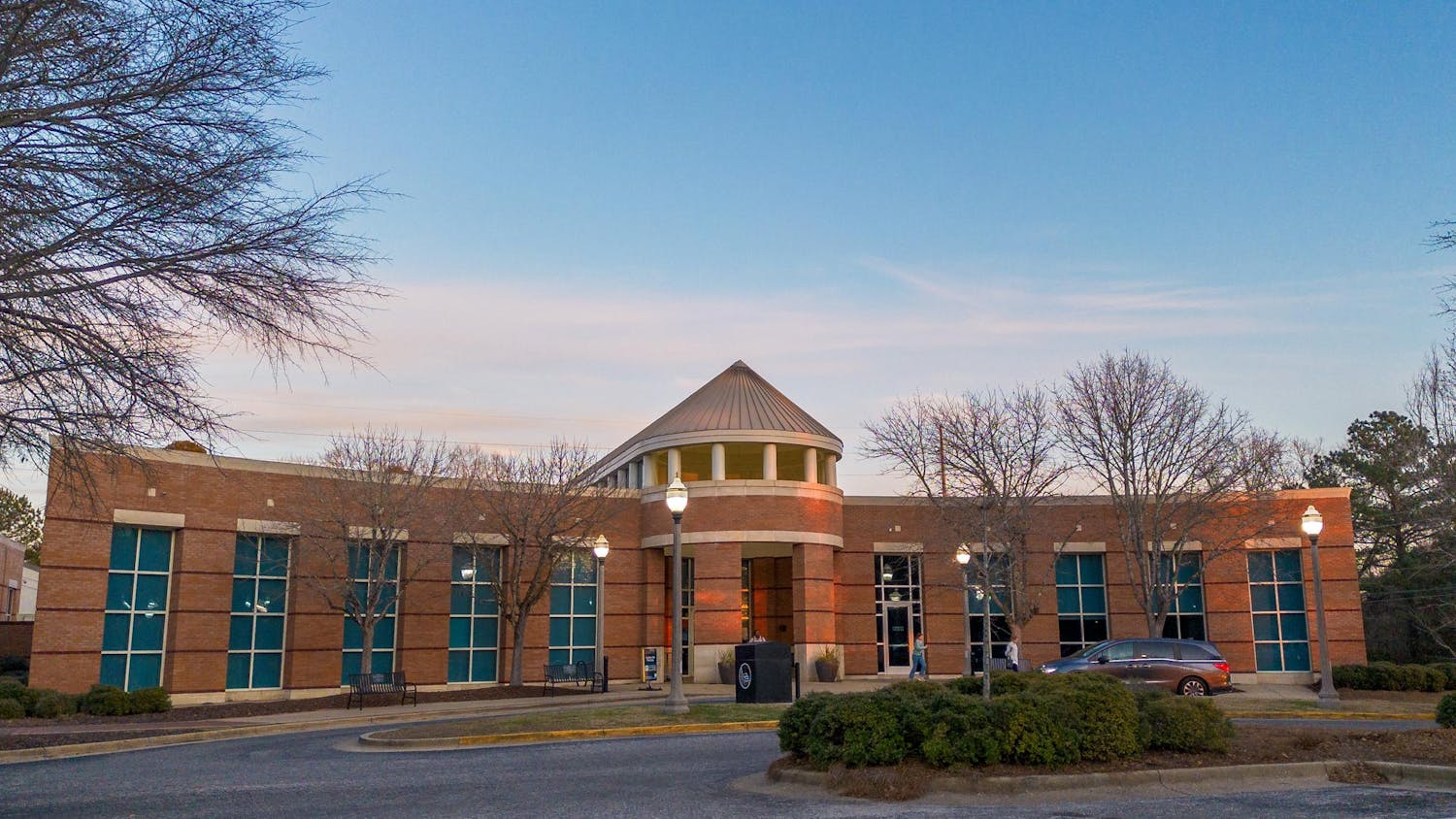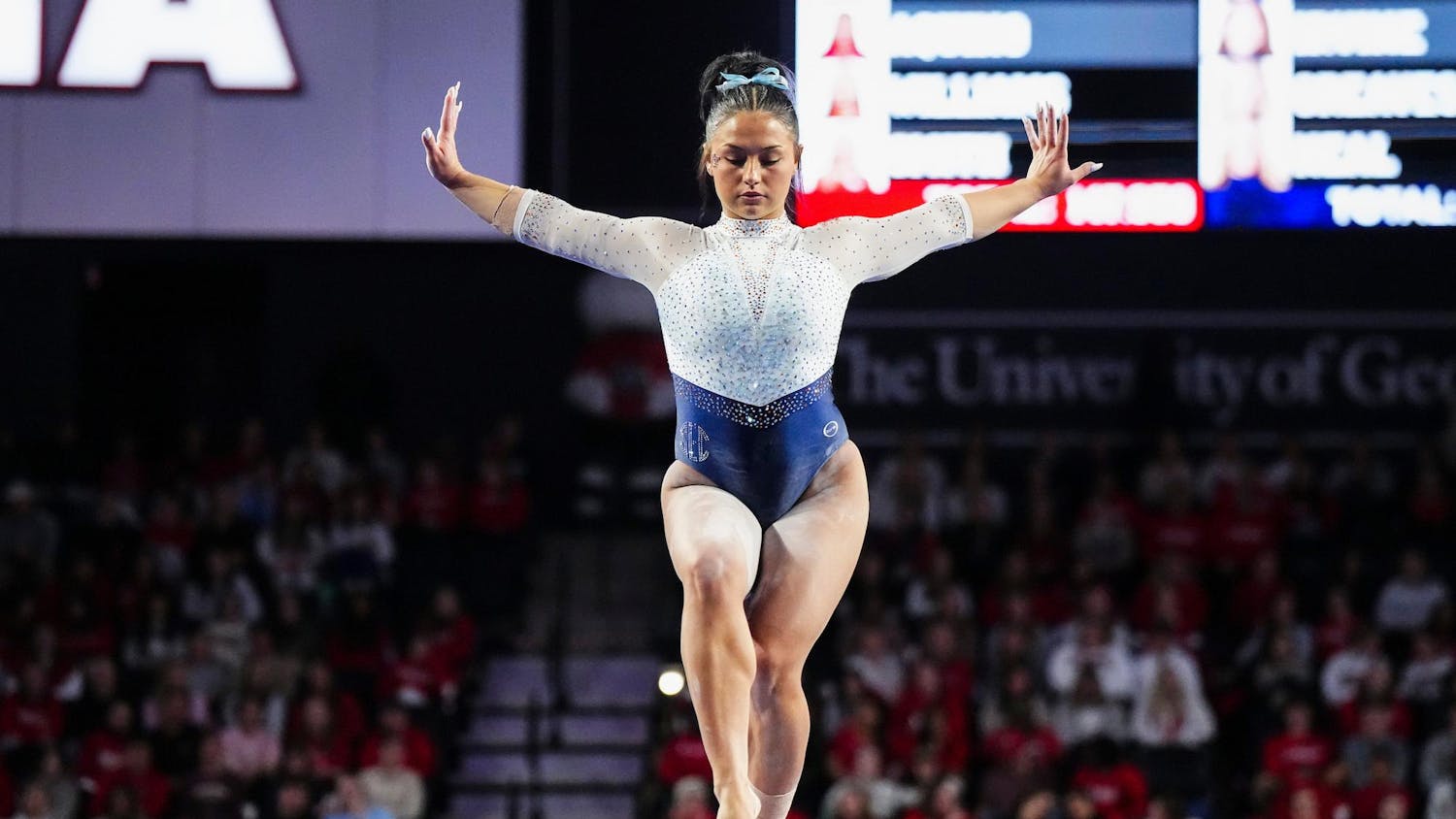Former White House correspondent Ann Compton and political strategist and former interim Chairwoman of the Democratic National Committee Donna Brazile addressed social media,
The event began with Taffye Benson Clayton, associate provost and vice president for inclusion and diversity, introducing the two honored speakers and asking them about social media’s impact on journalism today.
Compton held up her iPhone and said so many people have the journalistic tools to photograph, record and publish immediately to the internet. This value was demonstrated in the Egyptian revolution of 2011 when protesters posted video and pictures directly to social media and in 2013 after the Boston Marathon bombing when police were provided with evidence from cell-phone recordings.
Compton went on to say social media has also changed the way politicians spread their message to their constituents, for good or for bad.
“[Politicians] have used modern digital media to take their own case to the American people,” Compton said. “The problem with that is they aren’t journalists, and they only tell their side of the story.”
Brazile said the rise in technology has changed the way people communicate. The political strategist expressed mixed views about the advantages and disadvantages that those changes bring, especially concerning the advent of “fake news” and the erosion of public trust in journalists.
“It’s undermining our democracy, and it’s undermining the institutions that protect the very standards and norms that we need in a civil society,” Brazile said. “If the public discounts the free independent press that Mr. Trump calls ‘fake’ then only those media institutions who are in agreement with Mr. Trump will be listened to. If we cannot agree on what objective facts are, then how can we debate the issues?”
Clayton asked about today’s political climate and the lack of compromise on issues between parties.
Brazile attributed the lack of political compromise to the polarizing effects of online discourse and the ever-shrinking amount of politicians considered to be centrists.
“We have to find people who are able to go to Washington or go to your state capitol and forge compromises,” Brazile said. “After all, we’re one people, the American people, and I recognize that we wear different jerseys when we play, but when the game is over with we need to figure out how to come together as a country.”
Compton referenced the presidents she reported on as ABC’s White House correspondent in the past and said that they were able and willing to work across party lines in order to make
“Voters for the last 20 years or so have been sending an increasing number of members of Congress to Washington to break up the partnership, to not compromise, ‘My way or the highway,’” Compton said. “Until voters begin insisting that the members of Congress that they are electing go up there and get things done and not just simply tow their own line, I think we are in for a long period of this kind of gridlock.”
On the subject of increasing ethnic diversity in America and the implications it has for the future, Brazile said that our country still has a lot of progress to make in becoming more accepting of others.
“We’ve got to stop struggling with embracing inclusion,” Brazile said. “Diversity is like bringing someone in a room, and inclusion is like inviting them to dance. We have to become more comfortable … [Diversity] is a good thing. It’s good for America, it’s good for the world and it’s good for each other.”
At one point, the issue of sexual misconduct and gender equity was presented by Clayton, who asked about its implications for democracy.
“For me, where it impacts democracy is if women can’t have full access … then democracy just isn’t as healthy,” Compton said. “I am stunned by the extent to which the last month or so women have stood up and said more. I hope it’s a permanent change; I don’t know that it is, but it’s been utterly remarkable to watch.”
Brazile commented on Alabama’s special election to replace Attorney General Jeff Session’s seat on the U.S. Senate this December.
“Alabama has a big decision to make on Dec. 12,” Brazile said. “I hope the message you send to this country is more than a partisan point of view. … The country is going to look to you on Dec. 12 and say, ‘What did you say about it? What did you do about it?’ Don’t be silent. Please go out and vote.”
Do you like this story? The Plainsman doesn't accept money from tuition or student fees, and we don't charge a subscription fee. But you can donate to support The Plainsman.




